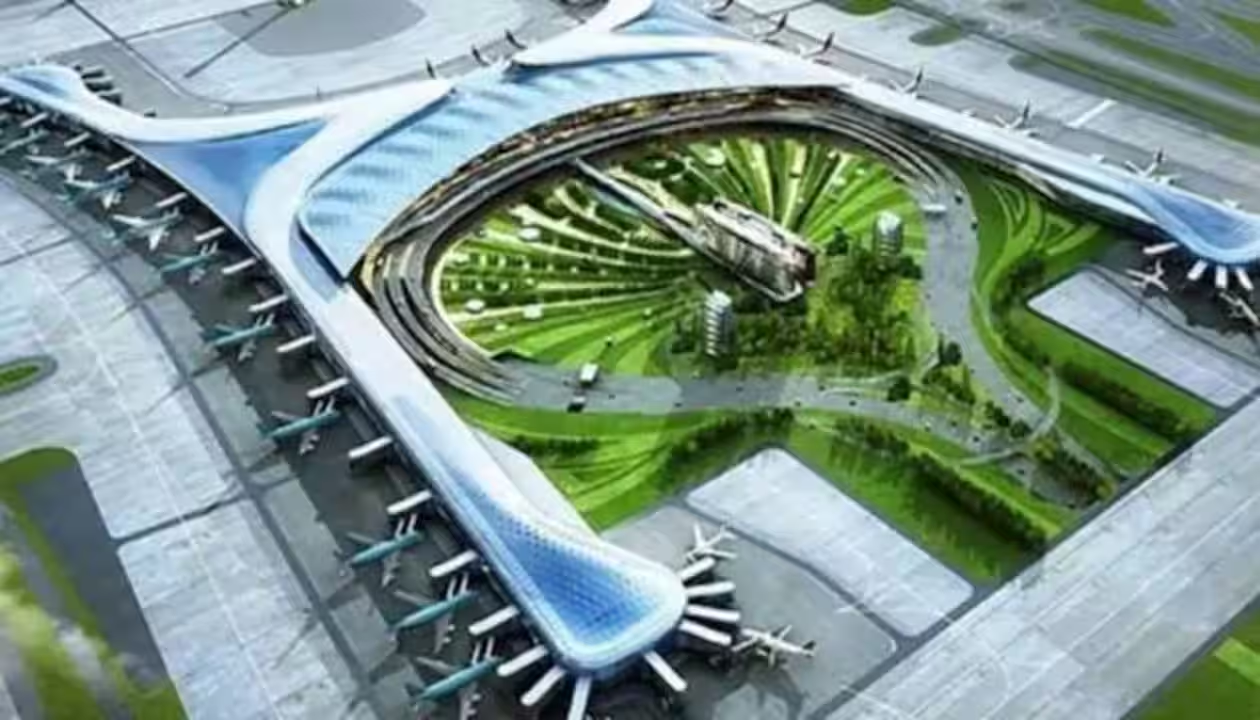
The recent inauguration of the Jewar airport in Noida has set the stage for exciting developments. Among these, the establishment of ‘Japanese’ and ‘Korean’ industrial cities holds immense promise. In this article, we explore how these cities are poised to impact Noida’s real estate market positively.
The Significance of ‘Japanese’ and ‘Korean’ Industrial Cities
- Global Investment Landscape
- The Yamuna Authority’s designation of two sectors in Gautam Buddh Nagar district as ‘Japanese’ and ‘Korean’ industrial cities has caught international attention.
- Noida now stands prominently on the global investment radar, attracting potential investors from Japan and Korea.
- Stimulating Real Estate Demand
- The development of these industrial cities is expected to create a surge in demand for both Residential and Commercial Properties.
- As businesses and industries set up shop, the need for housing and office spaces will grow.
- Infrastructure Enhancement
- With the influx of foreign investment, infrastructure development becomes a priority.
- Roads, utilities, and public amenities are likely to see improvements, benefiting residents and businesses alike.
- Investor Trust and Economic Growth
- The presence of ‘Japanese’ and ‘Korean’ industrial hubs instils confidence in investors.
- Economic growth is closely tied to such strategic developments, leading to a positive cycle of progress.
Noida International Airport: A Game-Changer
The Noida International Airport, also known as the Jewar Airport, is a transformative project that promises to reshape the region’s connectivity and economic landscape. Here are the key details:
- Project Overview
- Location: The airport site is situated east of the Yamuna Expressway in Gautam Buddh District, approximately 70 km from Delhi’s Indira Gandhi International Airport.
- Ownership: The project is owned by Noida International Airport Limited (NIAL).
- Operator: The operator is Yamuna International Airport Private Limited (YIAPL), a 100% subsidiary of Zurich Airport International.
- Architects: The airport’s design is a collaborative effort by Haptic Architects, Nordic, Grimshaw, and STUP.
- Estimated Cost: The project’s estimated cost is Rs. 29,650 crore.
- Phases of Development
- Phase 1: Scheduled for completion and opening in March 2024, Phase 1 includes:
- A 90,000 sqm Terminal 1 building.
- A 4,150 x 45 Code ‘E’ runway (Runway 10/28) with advanced CAT III approach lighting and visual aids.
- Parallel end-to-end taxiways.
- Air Traffic Control (ATC) facilities.
- Cargo infrastructure.
- Commercial developments.
- Metro and high-speed rail stations.
- Final Phase: The airport’s ultimate vision involves:
- Two runways initially.
- Expansion to a 6-runway airport over 30 years.
- Handling capacity scaling up from 5 million passengers per annum (MPA) to 60 MPA and eventually 120 MPA.
- Phase 1: Scheduled for completion and opening in March 2024, Phase 1 includes:
- Recent Milestones and Progress
- Concession Agreement: In October 2020, Uttar Pradesh and Zurich Airport signed a 40-year concession agreement after Zurich Airport secured the highest bid of Rs. 400.97 per passenger.
- Land Acquisition: Land acquisition for the project’s second phase commenced in January 2021.
- Geotechnical Surveys: Initial geotechnical and groundwater surveys were conducted by Cengrs Geotechnica.
- Metro Connectivity: Delhi Metro Rail Corporation (DMRC) is preparing a Detailed Project Report (DPR) for a new metro line linking Knowledge Park II and Jewar Airport.
- Expressway Construction: APCO Infratech was declared the lowest bidder for constructing a 30 km 6-lane expressway connecting Noida Airport to the Delhi-Mumbai Expressway.
- Name and Logo
- The airport’s official name is Noida International Airport.
- The brand logo features a Sarus Crane, the state bird of Uttar Pradesh, in flight.
The journey toward Noida becoming a preferred destination for international investment takes a significant step forward with the emergence of these industrial cities. As they inject fresh momentum into the real estate market, Noida’s future looks promising.
Remember, simplicity in language ensures wider accessibility and original content builds credibility. Let’s create an engaging article that informs and inspires!

